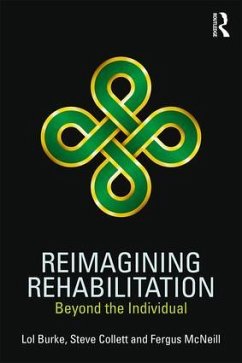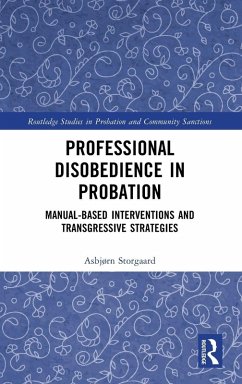
Reimagining Probation Practice
Re-forming Rehabilitation in an Age of Penal Excess
Herausgeber: Burke, Lol; Cluley, Emma; Carr, Nicola
Versandkostenfrei!
Versandfertig in 1-2 Wochen
149,99 €
inkl. MwSt.

PAYBACK Punkte
75 °P sammeln!
This book provides a comprehensive and positive reimagining of probation practice in England and Wales across all the key settings in which work with people subject to supervision takes place.














